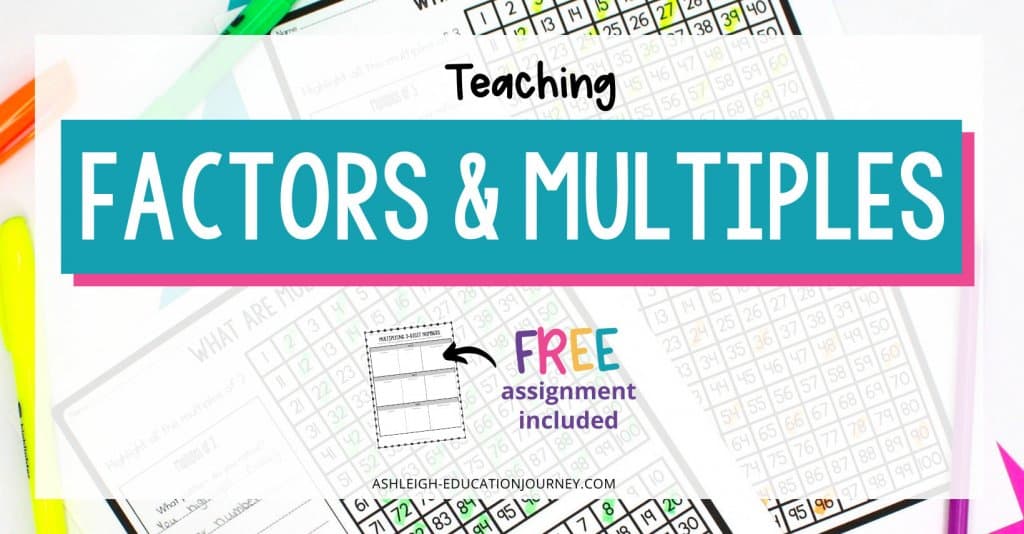
These factors and multiples worksheets and activities can help you as you teach factors and multiples. I speak from experience when I say that teaching factors and multiples is not for the faint of heart. In fact, factors and multiples are one of the most challenging concepts for students. A lot of that challenge stems from students not knowing their multiplication facts, but we can’t skip that concept because of that lack of core or background knowledge.
Hopefully as we teach factors and multiples, students will develop more efficient strategies for multiplying numbers and will continue to improve their memorization of multiplication facts. In this post, I’ve shared some of the lessons I use from my Multiplication Unit that help students understand factors and multiples.
In this post:
- What Are Multiples
- Multiples Booklet
- What Are Factors
- Factor Game
- Sort
- Prime and Composite Numbers
- Extra Practice
- Additional Resources
What Are Multiples
In the factors and multiples worksheets and lessons, students start by learning about multiples which was fairly easy for most students. During these lessons, a hundreds chart may be students’ best friend. They use hundreds charts to highlight or color multiples of two, three, four, five, and six. During the lesson, have students look at the pattern on their hundreds chart and ask students to predict other numbers that are multiples of that number.
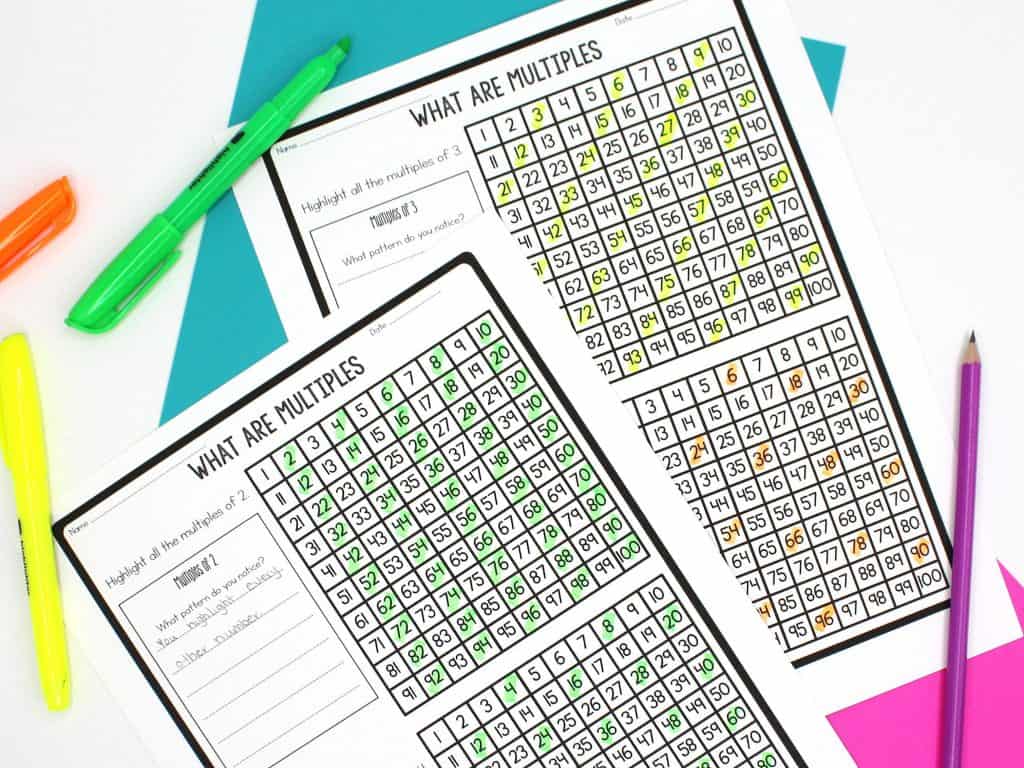
Multiples Booklet
After introduce multiples there are a few different options. Students can complete this multiples booklet where the write the multiples through one hundred for digits 2-10.
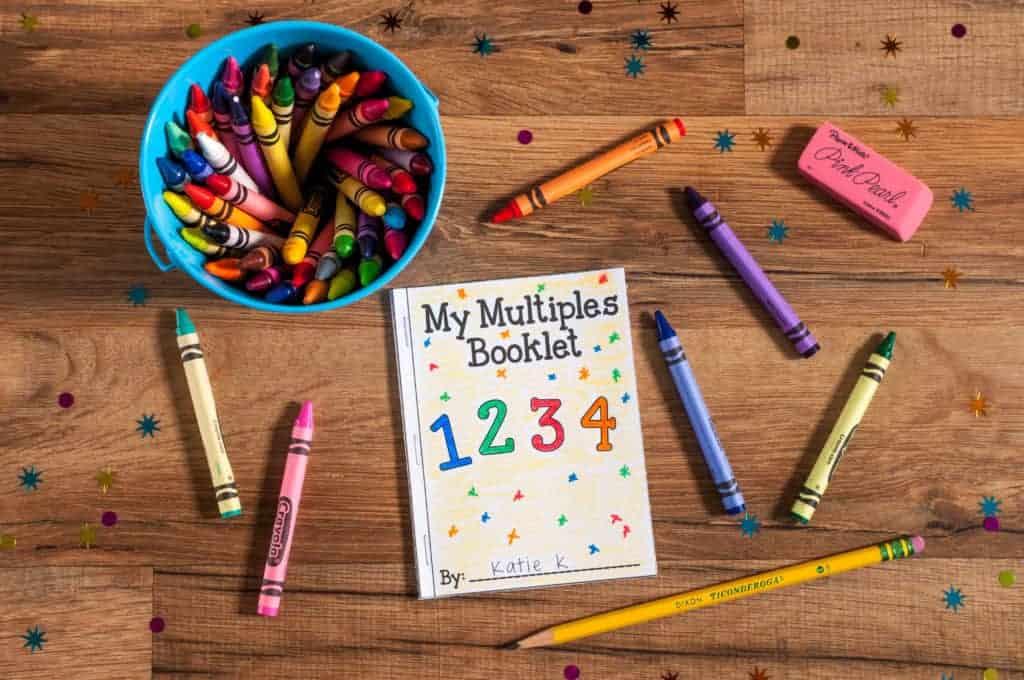
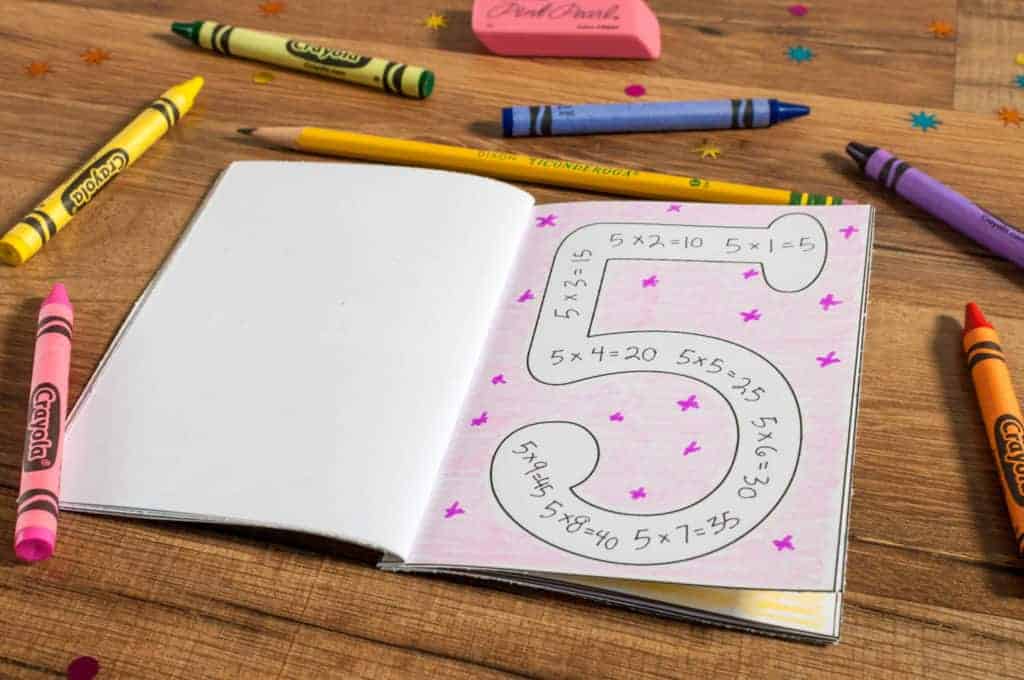
An alternative to the booklet is a lesson where students fill in dots for multiples of numbers through 100. It gives students another way to look at number patterns. It’s definitely a unique twist to traditional factors and multiples worksheets.
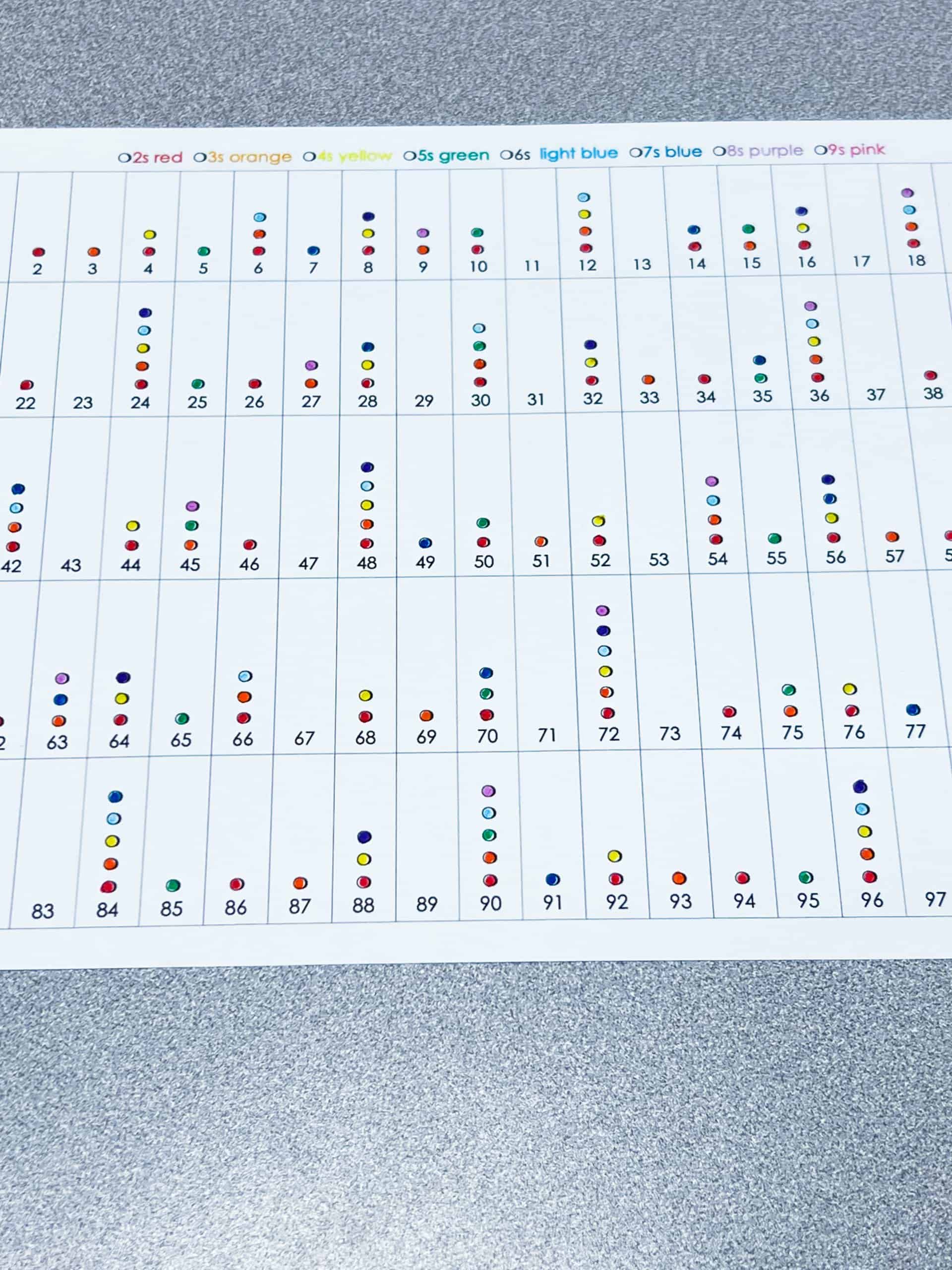
What Are Factors
Identifying factors is much more difficult for students. In the first activity, students used a stack of large index cards to create a number line from 0-100. I gave each student an index card, and on the index card they had to show all of the factors of that number. I gave students 1 cm and .5 cm grid paper to create arrays to represent their number. For instance, the student who had 12 would have created a 1×12, 2×6, and 3×4 array. Students also wrote the factor pairs for their numbers. Some students quickly recognized that some numbers had several factors, while other numbers (prime numbers) only had one factor pair. After students finished their first index card, they received a new index card and repeated the steps above until we had an index card for every number 1-100.
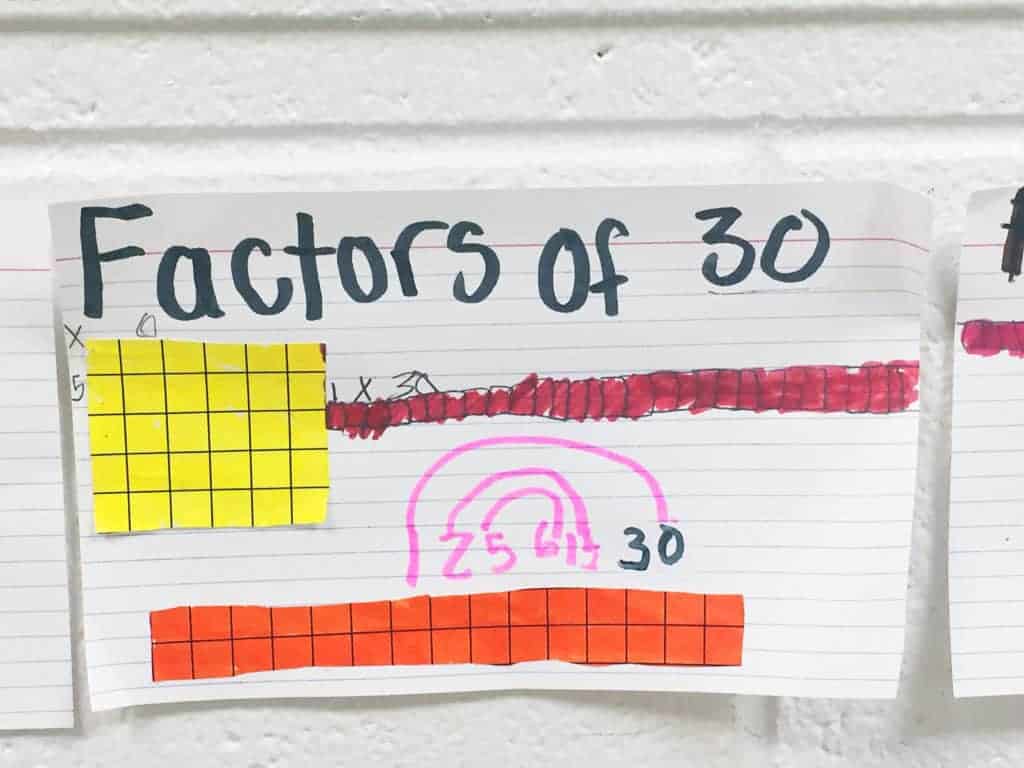
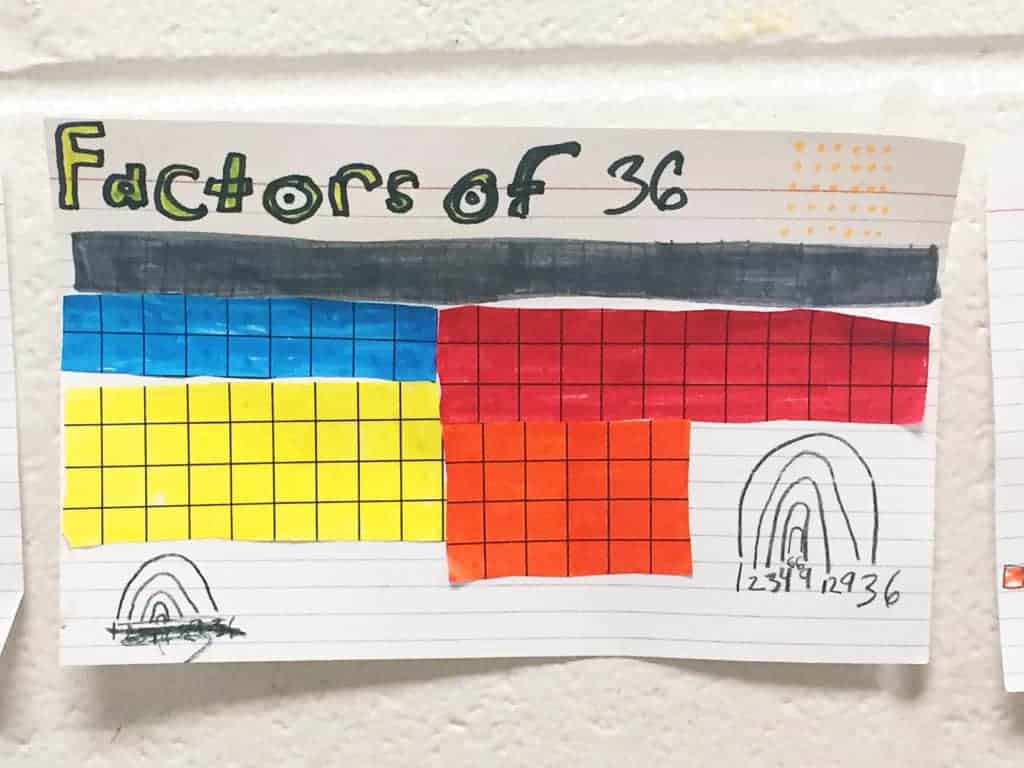
Once we had all 100 index cards ready, we taped the cards to the wall in the hallway to create a super long number line. Then, students were able to go on a number walk to identify all of the prime numbers through 100. This was such a meaningful activity for my students, and I felt like building the arrays and discovering which numbers were prime and which were composite made a pretty big impact on my students.
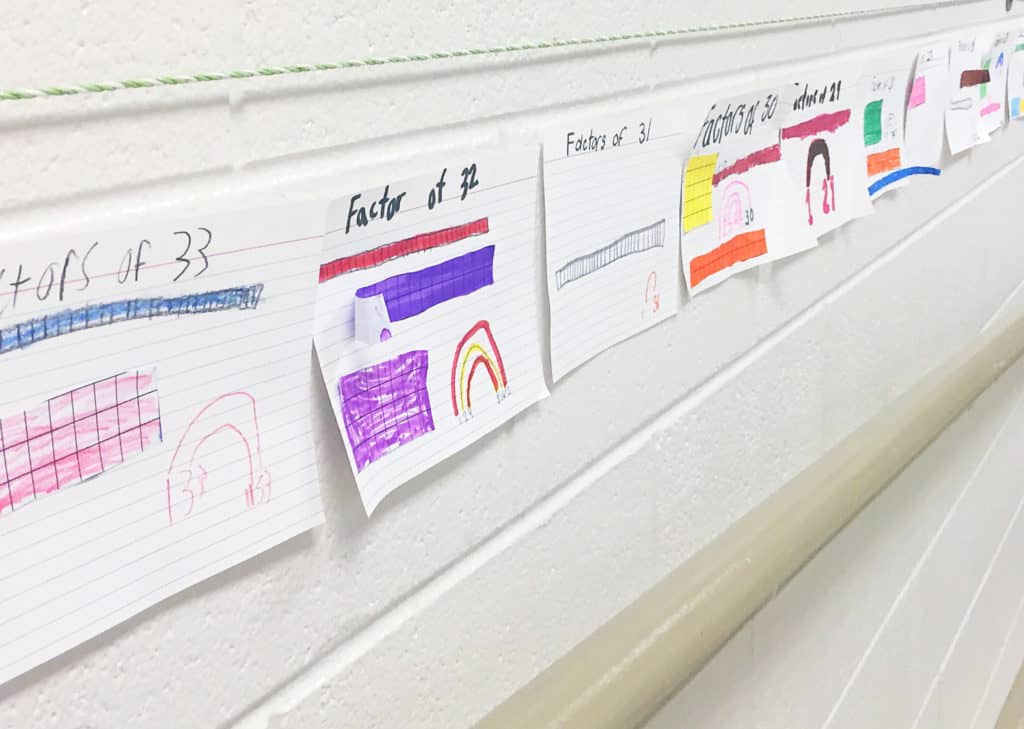
Students often need extra time to understand factors and multiples, so you can also incorporate a different version of the lesson. This factor worksheet is a bit more scaffolded and includes grids for students to draw all possible arrays for numbers 1-21.
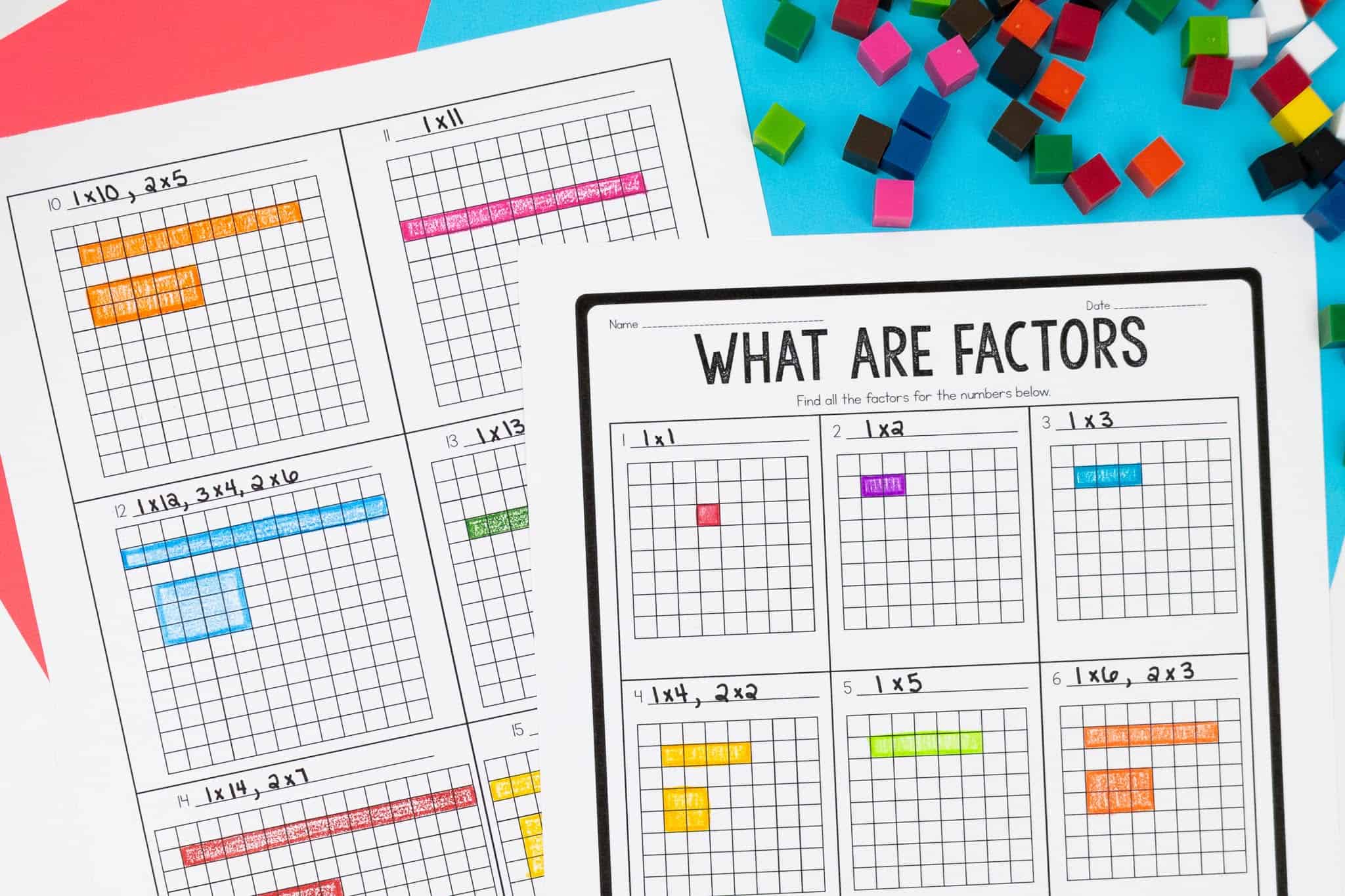
Prime and Composite Numbers
This is one of my favorite factors and multiples worksheet, because The Sieve of Eratosthenes is my absolute favorite way to teach prime and composite numbers. It’s fascinating for students to see how they can eliminate composite numbers! There is a great corresponding video on BrainPop that I like to incorporate with this lesson.
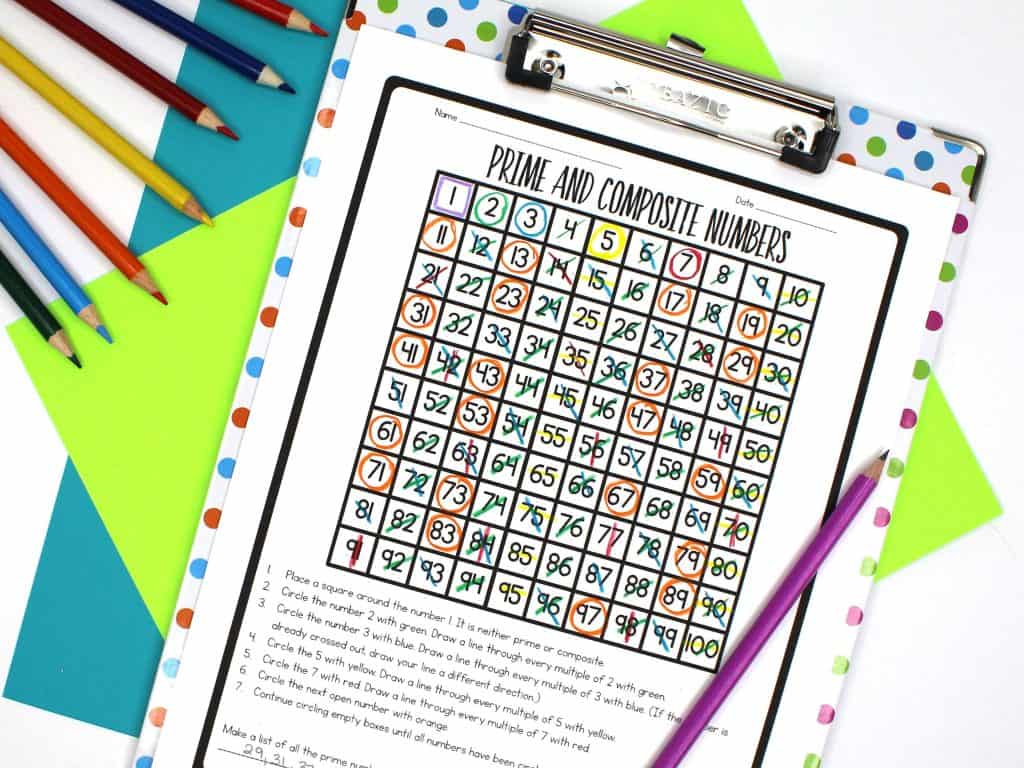
Factor Game
It’s important to not go too fast and leave students who need extra instruction behind. After I introduced factors, I wanted to take a day to work with students on an as needed-basis, so I introduced a fun factor game. While the majority of my students were playing the game, I met with those students who needed additional instruction. In the game, students roll two dice and use the dice to create a two-digit number. After students create the number and record it on the recording sheet, they write all the factors of that number on the same line. Then, students write the next five multiples of the number. Have students highlight or circle all the prime numbers they created.
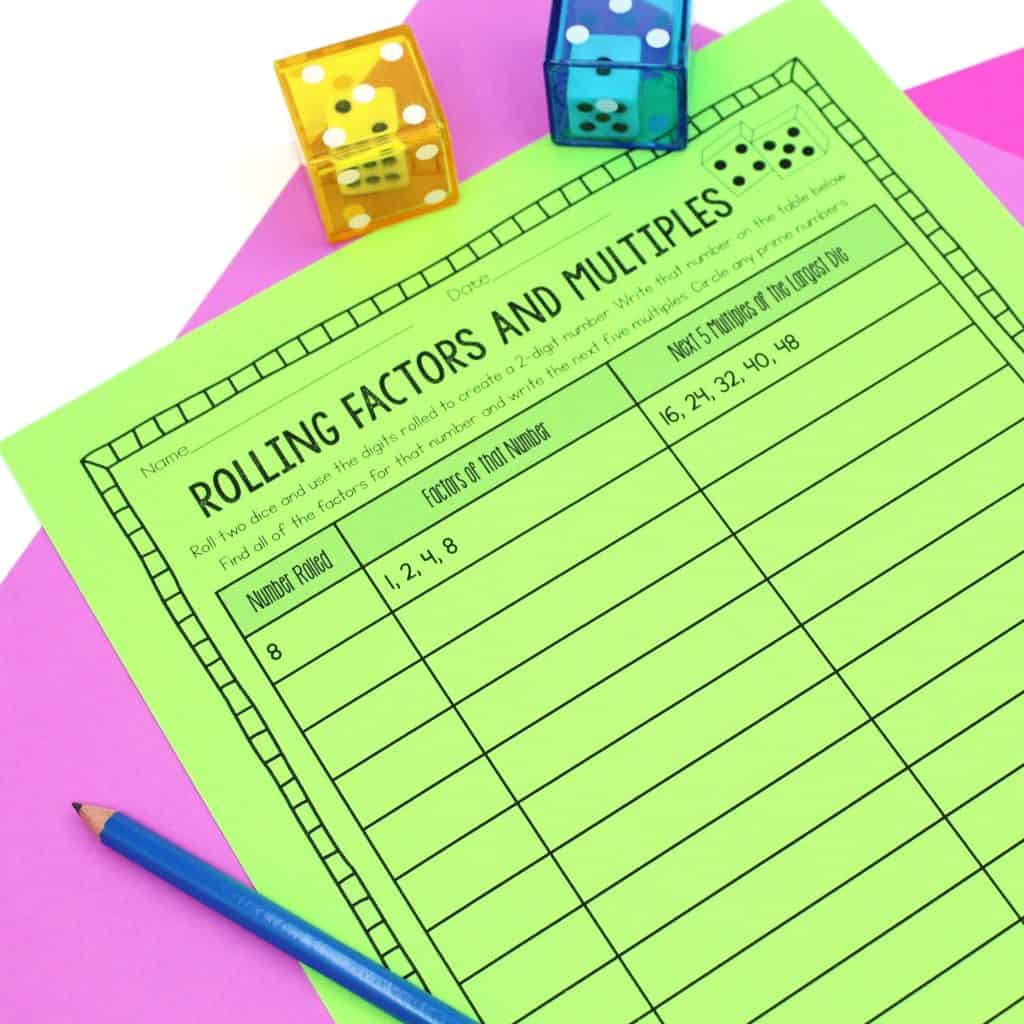
Factors and Multiples Sort
I LOVE using a Venn-Diagram for a factors and multiples sort. This is an open sort so, students determine the criteria for each section. Students select two labels for the first sort and three labels for the second sort. I did require students to select criteria that would include at least one number in each section.
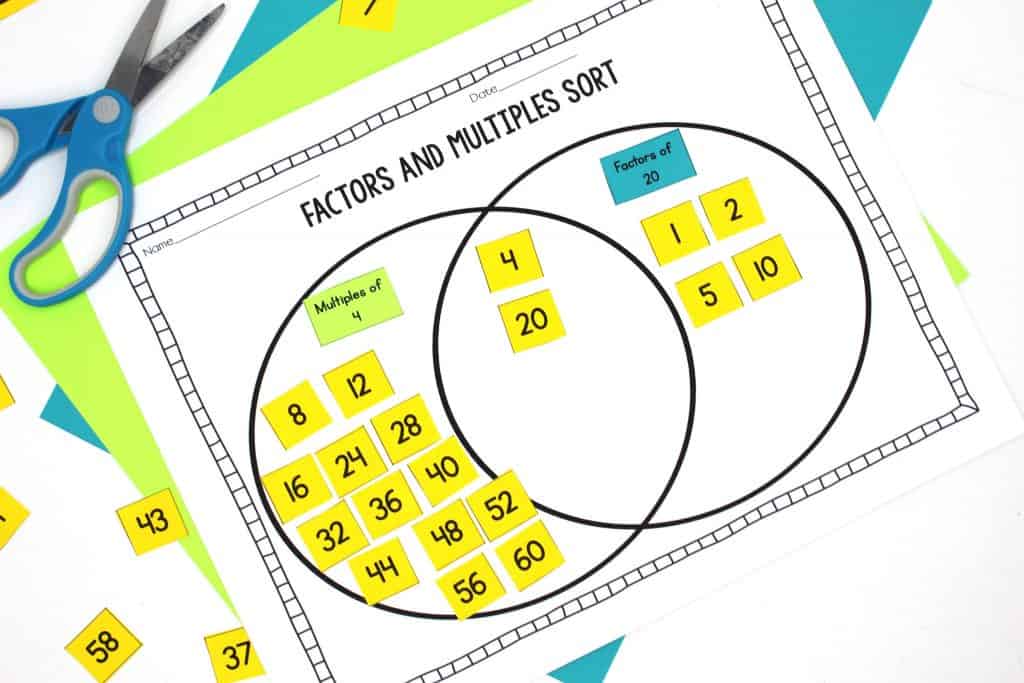
Factors and Multiples Extra Practice
If you see that your students need a little extra practice with factors and multiples, you might enjoy some of the extra practice pages that I included in the unit.
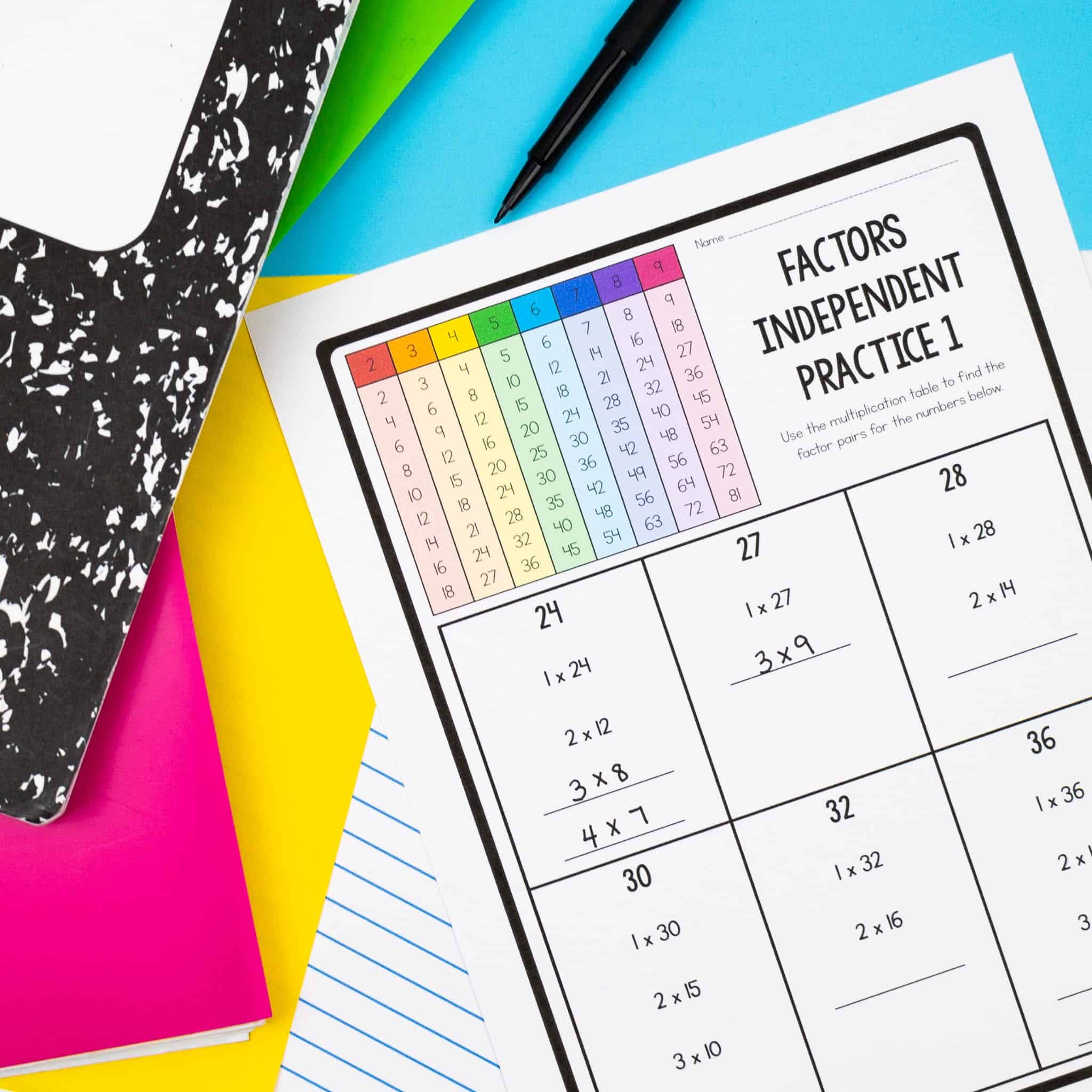
While this was a bit challenging, I do think that it required students to think in a way that would allow them to develop a better conceptual understanding of factors and multiples. You can download a free copy of the assignment here.
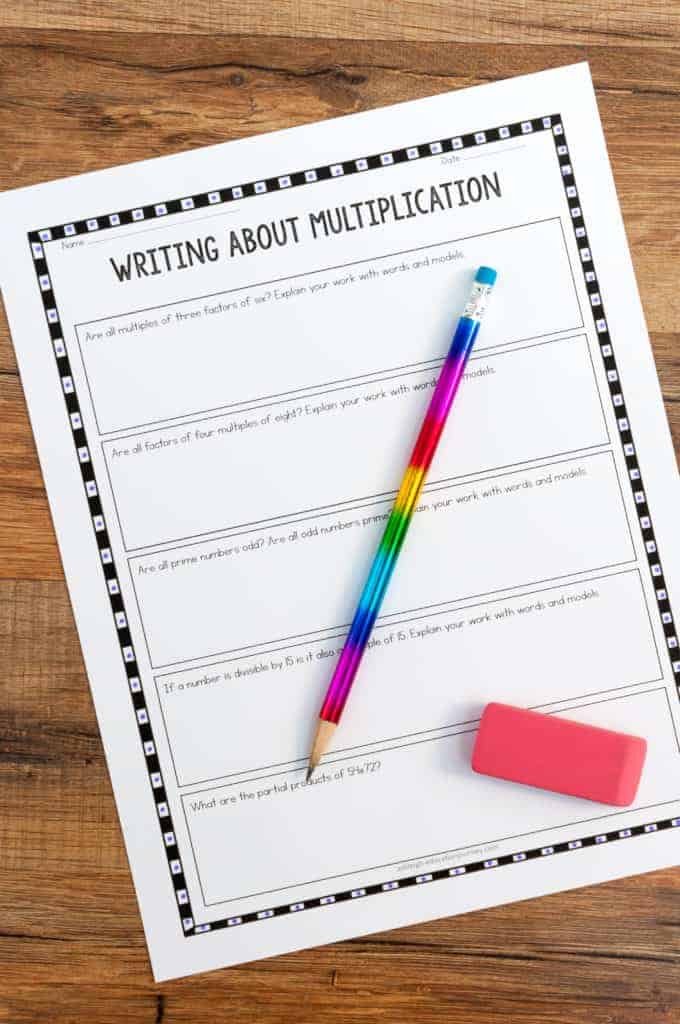
You can grab this free factors and multiples resource here.

Additional Resources
You can have students add factors and multiples to their Math Reference Notes (top) or Math Scribble Notes (bottom). Throughout the past two weeks, I have been impressed with how many times my students referred to these notes.
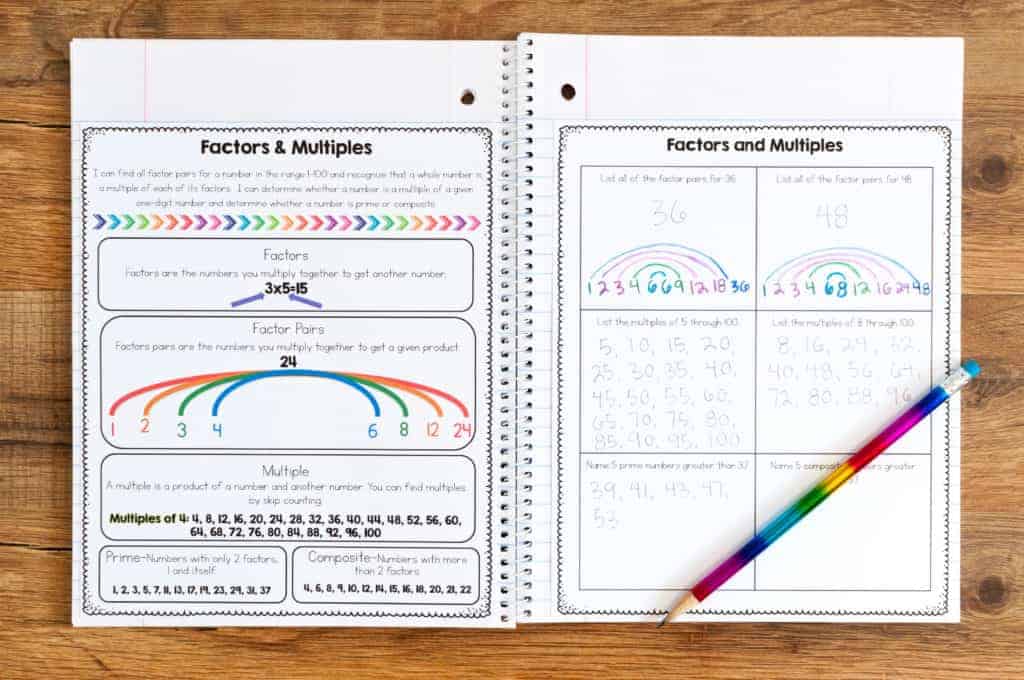
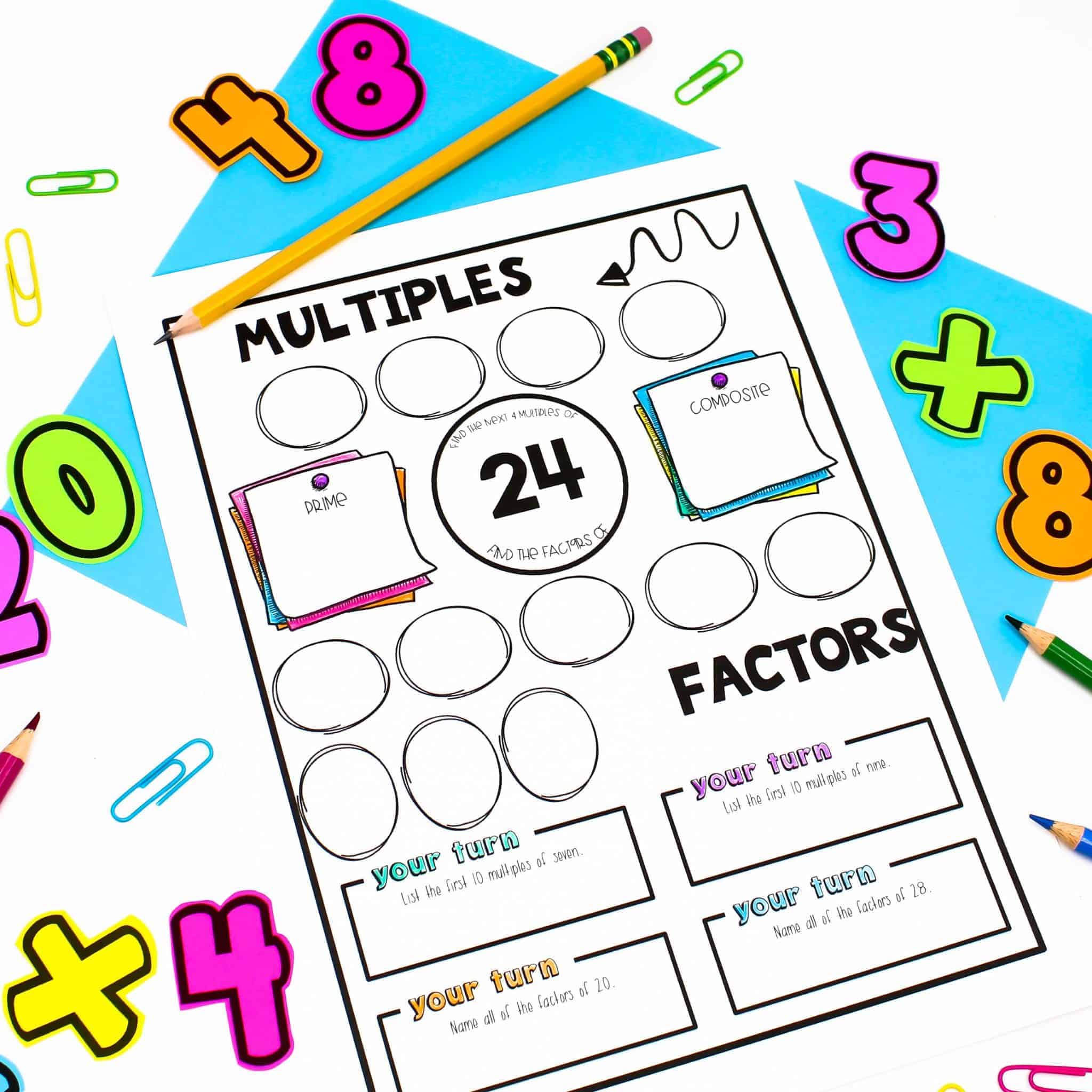
I also incorporate factors and multiples into a number of the day routine. Each day of the school year, introduce a new number. As a class, count by the multiples of that number through 100. Then, find all the factors for that number. After you finish a number, add it to a class banner and display in the classroom for student reference.
I print the prime numbers on teal paper, so they all look the same and really stand out. I print the composite numbers on white paper have students take turns decorating the composite numbers for the banner. This gives students a little more ownership of the banner. You can find the banner here.

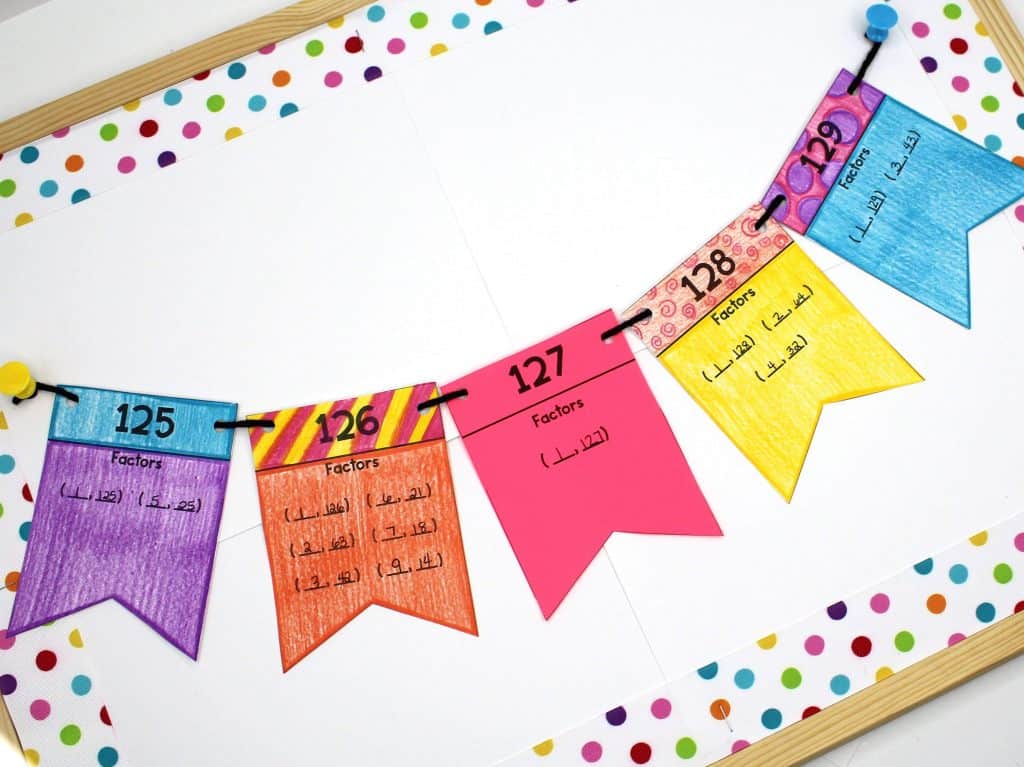
I don’t begin this factor of the day until after I introduce this unit, so during the first lesson, we may complete numbers 1-30 (or whatever day of school we are currently on).
To be 100% transparent, I tried eliminating that activity this year, and it was such a mistake! Come Monday morning that will be added back to our routine!

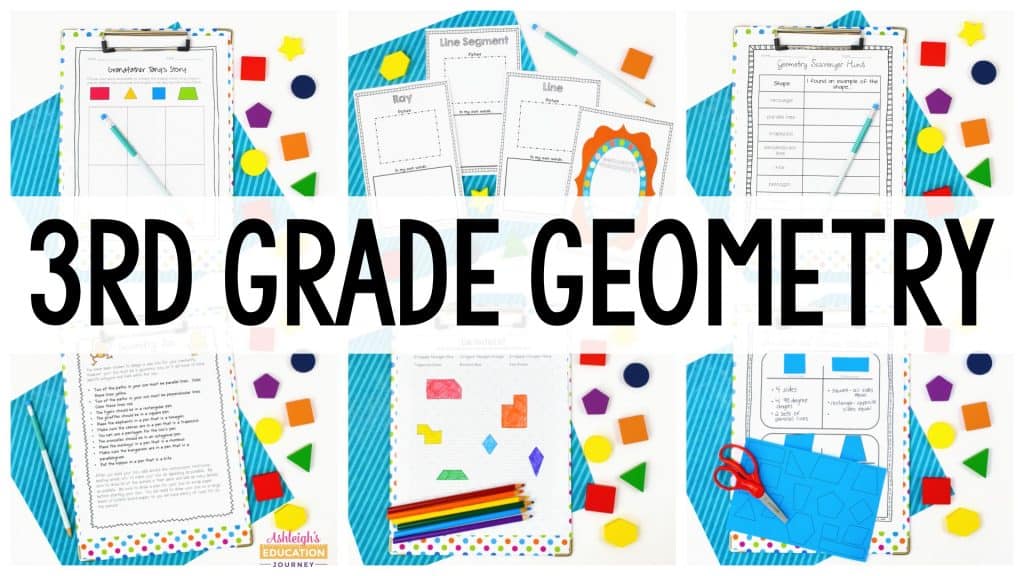

Hi Ashleigh,
Thank you for these great ideas! Are your resources available to use/ buy somewhere? When I click on them, I get to pinterest but I don’t know where to go from there!
Hi there! The top link should take you to it!
Hi there!
Where can I find the dots of multiples through 100? Is it part of the multiplication bundle?
Yes! It’s in this resource. https://www.teacherspayteachers.com/Product/4th-Grade-Multiplication-Unit-Distance-Learning-Print-Digital-2635294